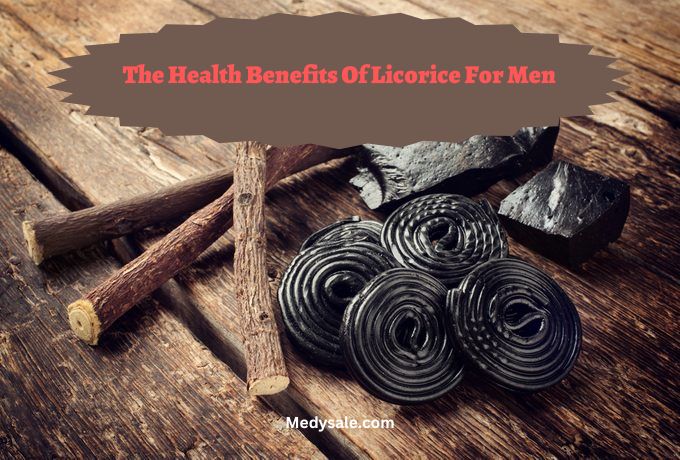Introduction
Glycyrhizaglabra, also known as Licorice is one of the most sought-after medicinal herbs in the Fabaceae family. This perennial plant is found in temperate zones. The roots and runners are the main components of this plant, which are harvest in autumn. It is believed that liquorice has use therapeutically in both western and eastern cultures for hundreds of years. It is one of the most common ingredients in Chinese medicine. Glycyrrhiza is a Greek term that means “sweet” and “rhiza”, which means “root”.
Nutritional value
Liquorice contains polysaccharides, simple sugars, amino acids, protein and mineral salts like calcium and potassium, sodium ferrous, zinc copper and phosphorous as well as manganese and magnesium. Vitamins B1, B2, and B3 are also found in them. It also contains vitamins B1, B2, and B3. Starches, pectins and gums as well as C. You can use ed Pills Cenforce 100 mg or Cenforce 200 mg.
Glycyrrhizin is the main ingredient in roots. Triterpenoid saponins are 50 times sweeter that sucrose.
Potential Uses Licorice
- Traditional Chinese medicine uses the plant to treat asthma, bronchitis and cough.
- It can still use in traditional medicine to treat gastritis and peptic ulcers.
- Lice can clean by using their dry root.
- WHO states that liquorice extract can use as an expectorant for the treatment of bronchial tube coughs and as a decongestant to sore throats.
The United States Food and Drug Association and the Council of Europe have approved the use of liquorice extract and glycyrrhizin in food additives.
The Benefits of Licorice
Liquorice root extracts have many benefits. They are antibacterial and anti-inflammatory. It can use to treat inflammation of the throat, respiratory and liver conditions, as well immunodeficiency.
1. Benefits of liquorice for fighting cancer
- The human cervical cancer
The most common form of cancer that affects women is cervical cancer. Isoliquiritigenin, a flavonoid chemical found within liquorice, is known as ISL. ISL therapy reduced the growth of cancer cells and increased cell death in research on cell lines. ISL therapy has been shown to be anti-cancer.
- Breast cancer
Breast cancer is the leading cause of death for women worldwide. ISL prevents breast cancer growth. ISL increases the death rate in cancer cells. It also blocks vascular endothelial growth factors (which are proteins that act on cancerous cells).
- Causes of liver cancer (in adults)
ISL has shown many benefits in adults against liver cancer. In a test animal, it demonstrated chemoprotective qualities. It also reduced the risk of developing liver carcinoma. ISL’s antioxidant properties decreased the risk of cancer cells developing from oxidative stress. It also inhibited cancer cell growth.
- Colon cancer
In animal studies, liquorice extract was shown to significantly reduce the growth of colon cancer-related tumours. As a chemoprotective medication for colon cancer, liquorice extract can use.
2. Licorice’s benefits in the treatment of respiratory tract infections
Chronic obstructive pulmonary disease is characteriz by chronic inflammation and oxidative stress. ISL is an antioxidant and anti-inflammatory best EDPills are Nizagara 100 and Fildena 100 mg. It has many advantages and could use to reduce inflammation in animals. One alternative treatment for obstructive breathing conditions is Licorice.
3. Licorice’s liver benefits
It has been shown that Licorice root can protect the liver from viral Hepatitis. Glycyrrhizin has developed in Japan and China to protect the liver. Glycyrrhetinic Acid, a chemical found in Licorice, has liver-protection benefits due to its anti-inflammatory and antioxidant properties.
4. Benefits of liquorice when fighting microbes
Numerous lab studies suggest that liquorice may be an effective treatment for bacterial infections. The results of liquorice extract have been encouraging in treating Candida albicans and Staphylococcus aureus-related infections.
5. Licorice’s benefits in treating inflammation
Inflammatory diseases have become a common problem and can have a significant impact on our daily life. It is possible to use the flavonoids found in liquorice as a way to reduce inflammation. The anti-inflammatory properties of liquorice extract have been shown to be effective in treating a variety of diseases, including chronic kidney disease.
6. Skin benefits of liquorice
- Liquorice’s advantages in Psoriasis, eczema
Glycyrrhhetinic Acid can be helpful in the treatment of eczema, allergic and contact dermatitis, and psoriasis. It has the same effects of hydrocortisone. It can also increase hydrocortisone topically by blocking an enzyme responsible for degrading hydrocortisone.
- Licorice and herpes simplex
Clinical studies have shown that glycyrrhetinic acid is effective in decreasing the time and severity of cold sores and herpes genitalia. Glycyrrhizin also inhibits the irreparable transmission of HSV 1. HSV 1 is the pathogen responsible for Herpes Simplex infections.
- The advantages of liquorice melasma
Glabrate and ISL are the major components of liquorice. These substances can cause melanin production to halt by the enzyme tyrosinase. Melasma and age spots can cause by melanin buildup. Glabrate or ISL may be effective skin-lightening agents.
Side Effects Of Licorice
Regular consumption of liquorice is associated with hypertension, sodium and water retention, and hypokalemia (below normal levels of potassium in the blood).
Consuming liquorice in excess can lead to metabolic alkalosis and low renin activities.
How to Use Licorice
The roots and rhizomes of Licorice are used for:
- Powder
- Tea
- Tonic
- Extract
- Tincture3
Your Ayurvedic physician will recommend the right dosage and form for you.
ED Pills
Vidalista 20 mg | Vidalista 40 mg | Vidalista 60
Take Care With Licorice
- It is recommend to keep track of your electrolytes and blood pressure when you take liquorice. It is recommend to increase potassium intake from foods.
- Patients with previous hypertension or renal failure should not use liquorice.
- Any person taking insulin or any other oral hypoglycemic medication should be vigilant about their blood glucose levels while taking liquorice.
- Because there isn’t enough information on the safety of drinking liquorice during lactation or during pregnancy, it is best to avoid it.
Interaction with Other Drugs
The main human drug-metabolising enzyme, P450, is inhibit by the extract of liquorice root. P450 enzyme. It can also enhance the effects of substances metabolised with the enzyme P450.


